
January 4
1913 Death: Alfred von Schlieffen: German Field Marshal Alfred von Schlieffen, mastermind of an aggressive German military strategy that will soon be used, in modified form, at the start of the Great War, dies on this day in 1913 in Berlin.
The son of a Prussian general, Schlieffen entered the army in 1854 and participated in both the Seven Weeks' War with Austria in 1866 and the Franco-Prussian War of 1870-71. Over the next few decades, Schlieffen rose through the ranks of the Great General Staff, an elite corps of about 650 officers that served as the strategic nexus of the Prussian army. He became its chief in 1891.
In the years since the end of the Franco-Prussian War and the German alliance agreement with Austria-Hungary in 1879, Schlieffen's predecessors, Alfred von Waldersee and Helmuth von Moltke (known as Moltke the elder—his nephew, also named Helmuth, would serve as the General Staff's chief during the Great War), had worked on developing a potential military strategy to fight a future two-front war against France and Russia. When Schlieffen took over, he continued these efforts, seeing such a war as an ever-more distinct probability. The planning was prescient. France and Russia—an unlikely match, given one's status as a progressive democracy and the other's as a tyrannical monarchy—did indeed join together in an alliance of their own in 1894, largely in response to the German threat.
Schlieffen believed that Germany's best bet was to engage France first, attacking through Belgium and Holland and enveloping western France before finally taking Paris, decisively ending France's status as a great power. Meanwhile, a smaller German army would hold off Russia in the east—Schlieffen believed Russia would not be able to mobilize its forces quickly enough to provide a formidable challenge. This strategy, outlined in an informal memorandum Schlieffen wrote in late 1905, near the end of his tenure as chief, came to be known as the Schlieffen Plan.
Less than two years after Schlieffen's death, the German army, under the command of his successor, Helmuth von Moltke (the younger), invaded Belgium on its way to France, violating that country's neutrality and effectively turning a smaller conflict into a general European war and eventually a global one.
The failure of the Schlieffen Plan to quickly and decisively achieve Germany's aims in the latter part of 1914 was variously attributed to flaws inherent in the plan itself and to its faulty execution under Moltke, who significantly modified the outline set forth by Schlieffen, declining to invade the Netherlands and refusing to significantly weaken his army on the Eastern Front for the sake of a quick victory in the west. In fact, the combination of the plan's tight timeline; a French resistance that was stronger than expected; Russia's quick and effective mobilization; and the general difficulty of moving and supplying the German troops and carrying out effective communications on such a grand scale in the west, proved to be too difficult and the decisive strategy envisioned by Schlieffen and put into practice by Moltke gave way to the reality of a longer and more grueling conflict. (History.com)
1919 Death: Georg von Hertling: Bavarian politician who served as Prime Minister of Bavaria and as Chancellor of the German Empire from 1917 to 1918. He was old when he became Chancellor and was unable to overcome the power of the military high command, led by Paul von Hindenburg and Erich Ludendorff, despite having been a deputy to the Reichstag and a leader of the Centre Party. (He was required to resign his seat when he took office under the Kaiser.)
1920 Holocaust: Protocols: Gottfried zur Beek (Ludwig Mueller von Hausen) publishes the infamous forgery, The Protocols of the Elders of Zion, in German; the first documented non-Russian version. It is dated 1919, but is actually published in January 1920; would that that were the only inaccuracy contained within the pages of this worthless publication. Thirty-three versions will be published in German by 1933. (THP)
1923 Weimar: Reparations: The Paris Conference on war reparations hits a deadlock as the French insist on the hard line and the British insist on Reconstruction.
1925 Weimar: Adolf Hitler, just a few weeks out of prison, is received by the Bavarian Prime Minister. (Maser)
1932 Manchukuo is founded and administered by Imperial Japan, with Puyi, the last Qing emperor, as the nominal regent and emperor.
1933 Weimar: Hitler holds what is supposed to be a secret meeting with former Chancellor Franz von Papen, but Papen is photographed entering the meeting place (the home of Cologne banker Baron Kurt von Schroeder) and both Hitler and Papen subsequently deny that they had discussed anything more than 'the possibility of a great national unity front'. In actuality, Papen, who is still miffed at being canned from the government, sounds Hitler out about joining a government in tandem with Papen. Hitler holds out the possibility of involvement with Papen supporters in a cabinet under Hitler's leadership as long as they are prepared to accept the removal of Communists, Social Democrats and Jews from 'leading positions' and the 'restoration of order in public life.' Papen does, however, warn Hitler that Reich President Hindenburg is still adamant about not allowing Hitler to gain power.
1935 Church and Reich: The German bishops rule that since the main purpose of marriage is procreation, sterilized people may not partake of the sacrament of matrimony (see January 15, 1936).
1936 Church and Reich: Ambassador Bergen in Rome writes to German foreign minister Constantin von Neurath that the Pope is protesting the violations of the Concordat by the Hitler government, and has several times threatened to bring his complaints into the open. It has taken the moderation of Secretary of State Pacelli to prevent a rupture of relations.
1938 Holocaust: Hermann Goering issues a decree classifying even firms with 25% Jewish ownership as subject to 'Aryanization'.
1940 World War II: Goering is given overall control of German war industry.
1942 World War II: Joseph Goebbels speaks on the outlook for Germany in 1942: Countless people in the enemy camp will nervously ask themselves what this new year 1942 will bring for them and their people. Will it be stagnation, setbacks or defeat? The year 1941 took some detours, and turned out entirely differently than our enemies had hoped. One or another may have the nagging doubt as the new year gives occasion add up the state of affairs, to wonder what catastrophes may be coming, or what heavy blows from which they will never recover. By us to one looks to the past and the future, though under considerably more favorable conditions than the enemy. We are fighting for a just and clear cause.
1944 Various: World War II: Italy: World War II: The Red Army crosses the pre-war border between Poland and USSR in Wolyn.
Resistance: In Switzerland, Han Bernd Gisevius and his Abwehr associate Eduard Waetjen begin supplying Dulles with information about the German resistance's plans for a coup against Hitler.
United States begins supplying guerrilla forces:
On this day, U.S. aircraft begin dropping supplies to guerrilla forces throughout Western Europe. The action demonstrated that the U.S. believed guerrillas were a vital support to the formal armies of the Allies in their battle against the Axis powers.
Virtually every country that experienced Axis invasion raised a guerrilla force; they were especially effective and numerous in Italy, France, China, Greece, the Philippines, Yugoslavia, and the Soviet Union. Also referred to as a "partisan force," a guerrilla army is defined roughly as a member of a small-scale "irregular" fighting force that relies on the limited and quick engagements of a conventional fighting force. Their main weapon is sabotage-in addition to killing enemy soldiers, the goal is to incapacitate or destroy communication lines, transportation centers, and supply lines.
In Italy, the partisan resistance to fascism began with assaults against Mussolini and his "black shirts." Upon Italy's surrender, the guerrillas turned their attention to the German occupiers, especially in the north. By the summer of 1944, resistance fighters immobilized eight of the 26 German divisions in northern Italy. By the end of the war, Italian guerillas controlled Venice, Milan, and Genoa, but at a considerable cost--all told, the Italian resistance lost roughly 50,000 fighters.
Perhaps the most renowned wartime guerrilla force was the French Resistance--also known as the "Free French" force--which began as two separate groups. One faction was organized and led by Gen. Charles de Gaulle, who left France upon the Vichy/Petain armistice with Germany but rallied his forces via the British airwaves. The other arm of the movement began in Africa under the direction of the commander in chief of the French forces in North Africa, Gen. Henri Giraud. De Gaulle eventually joined Giraud in Africa after tension began to build between de Gaulle and the British. Initially, de Gaulle agreed to share power with Giraud in the organization and control of the exiled French forces, but Giraud resigned in 1943, apparently unwilling to stand in de Gaulle's shadow or struggle against his deft political maneuvering.
The Allies realized that guerrilla activity was essential to ending the war and supported the patriots with airdrops. The American support was critical, because guerrillas fought admirably in difficult conditions. Those partisans who were captured by the enemy were invariably treated barbarically (torture was not uncommon), as were any civilians who had aided them in their mission. Tens of thousands of guerillas died in the course of the war, but were never awarded the formal recognition given the "official" fighting forces, despite the enormous risks and sacrifices. (History.com)
World War II: Stalin to Churchill: I much regret that I was unable to convince you of the correctness of the Soviet Governments attitude towards the Polish question. I nevertheless hope that future events will show you that our recognition of the Polish Government in Lublin is in the interests of the general Allied cause and will contribute to hasten the defeat of Germany . . . . I am aware that the President has your consent to a meeting between the three of us at the end of the month or the beginning of February. I shall be glad to see you and the President.
World War II: Churchill to Eden: Treatment of Germany after the war. It is much too soon for us to decide these enormous questions. Obviously, when the German organized resistance has ceased the first stage will be one of severe military control. This may well last for many months, or perhaps for a year or two, if the German underground movement is active. 2. We have yet to settle the practical questions of the partition of Germany, the treatment of the Ruhr and Saar industries, etc. These may be touched upon at our forthcoming meeting, but I doubt whether any final decision will be reached then. No one can foresee at the present moment what the state of Europe will be or what the relations of the Great Powers will be, or what the tempers of their peoples will be. I am sure that the hatreds which Germany has caused in so many countries will find their counterpart here. 3. I have been struck at every point where I have sounded opinion at the depth of the feeling that would be aroused by a policy of "putting poor Germany on her legs again." I am also well aware of the arguments about "not having a poisoned community in the heart of Europe." . . . .
I remember so well last time being shocked at the savage views of the House of Commons and of the constituencies, and being indignant with Poincare when he sent the French into the Ruhr. In a few years however the mood of Parliament and the public changed entirely. Thousands of millions of money were lent to Germany by the United States. I went along with the tolerant policy towards Germany up to the Locarno Treaty and during the rest of Mr. Baldwin's Government on the grounds that Germany had no power to harm us. But thereafter a swift change occurred. The rise of Hitler began. And thereafter I once again found myself very much out of sympathy with the prevailing mood.
World War II: Units of Sepp Dietrich's Sixth SS Panzer Army are withdrawn from the Ardennes and transferred to the Eastern Front.
World War II: German attacks in Alsace continue near Bitche.
1946 Nuremberg Tribunal: On day 27, SS Brigadefuehrer Walter Schellenberg, a witness for the prosecution, is cross-examined by Kaltenbrunner's defense: Dr Kauffmann: Did Kaltenbrunner ever indicate to you that he had agreed with Himmler that everything concerning concentration camps and the entire executive power was to be taken away from him and that only the SD, as an intelligence service, was to be entrusted to him and that he wanted to expand this intelligence service in order to supply the criticism that was otherwise lacking? Alois Hollriegl, a guard at Mauthausen Concentration Camp, testifies for the prosecution: Colonel Amen: And you therefore had occasion to witness the extermination of inmates of that camp by shooting, gassing, and so forth? Also on the Twenty-Seventh Day of the Trial, Colonel Telford Taylor makes the prosecution case against the German High Command, perhaps the most difficult task any of the prosecutors will be asked to accomplish. His impressive performance will help secure his appointment as lead prosecutor in the subsequent Nuremberg trials. [For the full text of today's testimony, Click here.] Death: Theodore Schurch:
One day after William Joyce became the last Briton put to death for treason, 27-year-old Theodore Schurch [was] hanged for treachery, at London's Pentonville Prison. Like Joyce, Schurch had enrolled in the British Union of Fascists as a teenager in the 1930's, and it was reputedly at the party's direction that he joined the army as a driver.
During World War II, Schurch crossed and recrossed enemy lines, delivering operational intelligence to the Italians and Germans by helping to interrogate prisoners of war, or posing as a P.O.W. himself to gain the confidences of other captured Allied soldiers.
Schurch's army buddies seemed to think he was alright, and there was probably more than a shred of truth to the defense's contention, paraphrased by The Times (London September 18, 1945), that the lad "was a poor, uneducated fool who was caught young [by fascist ideology] when he knew no better and jockeyed into a position from which he could not recover."
But obviously, one makes this argument when one is in no position to contest factually the capital charges against oneself, and indeed has admitted much of it. Schurch was convicted on all nine counts of treachery, plus one of desertion. Not a big fish, maybe--but just the right size to become the last man hanged in Britain for a crime other than murder.
1950 The God That Failed published: The God That Failed, a collection of essays by six writers and intellectuals who either joined or sympathized with the communist cause before renouncing the ideology, is published by Harpers. [For further information, click here]
1951 Korean War: Chinese and North Korean troops capture Seoul. [See: The Third Battle of Seoul.] 1952 Wunderwaffen: Hitler's lead rocket scientist, Werner von Braun, who is now working on America's missile program, publishes the English version of his 1948 book Das Marsprojekt, The Mars Project, his plan for a manned Mars mission which will use his proposed space station as a staging point. This ambitious plan calls for a fleet of ten spacecraft each carrying in addition to cargo one 200-ton winged lander, with nine crew vehicles transporting a total of 70 astronauts. [See: Wunderwaffen: Hitler's Deception and the History of Rocketry.] 1962 Death: Hans Heinrich Lammers: Chief of the Reich Chancellery, 1933-45. SS lieutenant general. Sentenced to 20 years imprisonment in 1949. Released in 1951. 1978 The following is from a letter, one of hundreds, received by the Speers [Note: Albert Speer was released from Spandau Prison on October 1, 1966, after serving 20-years for Crimes Against Humanity.] as a matter of course: You pig of a traitor: We have looked for you for a long time. You who as our Fuehrer's architect profited when he went from victory to victory. You, who planned to gas him and his staff when he defended our Berlin. You pig played the penitent, and barricaded in a villa guarded by dogs, betrayed us. Your lying scribbles show your true character . . . with speechifying, toadying to the victors and sending money to Jewish organizations . . . you are trying to get yourself readmitted to society . . . you money grabbing pig . . . . When we put an end to you, no one will care. No one will shed a single tear. And we will put an end to you. Rely on it. At their Heidelberg home, Speer and his wife Marget, now both 73, have an iron gate out front, but it is always open. They also have a Saint Bernard dog that slobbers happily on one and all. The letter is postmarked from Lincoln, Nebraska and signed by 'The victims of October 16, 1946.' (Sereny)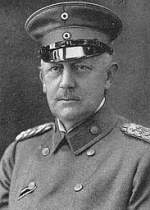
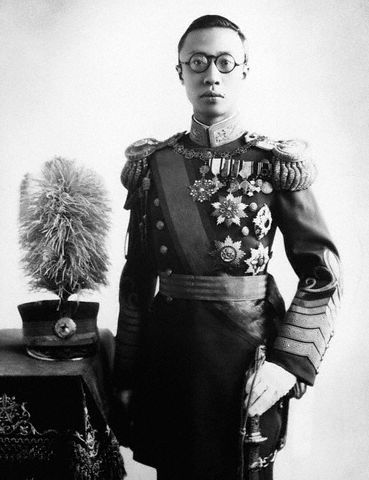


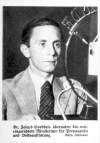
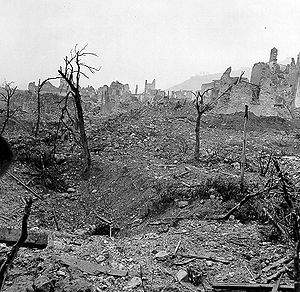

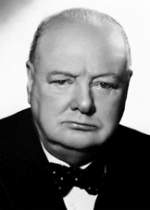

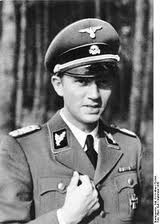
Schellenberg: I never heard of any such agreement, and what I found out later to be the facts is to the contrary.
Dr Kauffmann: Now, since you have given a negative answer, I must ask you the following question, in order to make this one point clear: Which facts do you mean?
Schellenberg: I mean, for instance, the fact that after the Reichsfuehrer SS very reluctantly agreed, through my persuasion, not to evacuate the concentration camps, Kaltenbrunner-by getting into direct contact with Hitler-circumvented this order of Himmler's and broke his word in respect to international promises.
Dr Kauffmann: Were there any international decisions in respect to this-decisions which referred to existing laws or decisions which referred to international agreements?
Schellenberg: I would like to explain that, if through the intermediary of internationally known persons, the then Reichsfuehrer SS promised the official Allied authorities not to evacuate the concentration camps, owing to the general distress, this promise was binding according to human rights. [For the full text of today's testimony, Click here.]
Hollriegl: Yes, I saw that.
Colonel Amen: And did you make an affidavit in this case to the effect that you saw Kaltenbrunner at that camp?
Hollriegl: Yes.
Colonel Amen: And that he saw and was familiar with the operation of the gas chamber there?
Hollriegl: Yes.
Colonel Amen: Did you also have occasion to see any other important personages visiting that concentration camp?
Hollriegl: I remember Pohl, Glucks, Kaltenbrunner. [For the full text of today's testimony, Click here.]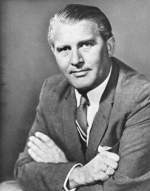

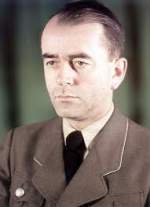
1999 The euro debuts:
For the first time since Charlemagne's reign in the ninth century, Europe is united with a common currency when the "euro" debuts as a financial unit in corporate and investment markets. Eleven European Union (EU) nations (Austria, Belgium, Finland, France, Germany, Ireland, Italy, Luxembourg, the Netherlands, Portugal and Spain), representing some 290 million people, launched the currency in the hopes of increasing European integration and economic growth. Closing at a robust 1.17 U.S. dollars on its first day, the euro promised to give the dollar a run for its money in the new global economy. Euro cash, decorated with architectural images, symbols of European unity and member-state motifs, went into circulation on January 1, 2002, replacing the Austrian schilling, Belgian franc, Finnish markka, French franc, German mark, Italian lira, Irish punt, Luxembourg franc, Netherlands guilder, Portugal escudo and Spanish peseta. A number of territories and non-EU nations including Monaco and Vatican City also adopted the euro. [For further information, click here.]
Edited by Levi Bookin (Copy editor) Click to join 3rdReichStudies
FAIR USE NOTICE: This site may contain copyrighted material the use of which has not always been specifically authorized by the copyright owner. We are making such material available in our efforts to advance understanding of historical, political, human rights, economic, democracy, scientific, environmental, and social justice issues, etc. We believe this constitutes a 'fair use' of any such copyrighted material as provided for in section 107 of the US Copyright Law. In accordance with Title 17 U.S.C. Section 107, the material on this site is distributed without profit to those who have expressed a prior interest in receiving the included information for research and educational purposes. If you wish to use copyrighted material from this site for purposes of your own that go beyond 'fair use', you must obtain permission from the copyright owner.
Please note that the list-owner and the moderators are not responsible for, and do not necessarily approve of, the random ads placed on our pages by our web server. They are, unfortunately, the price one pays for a 'free' website.
levi.bookin@gmail.com






